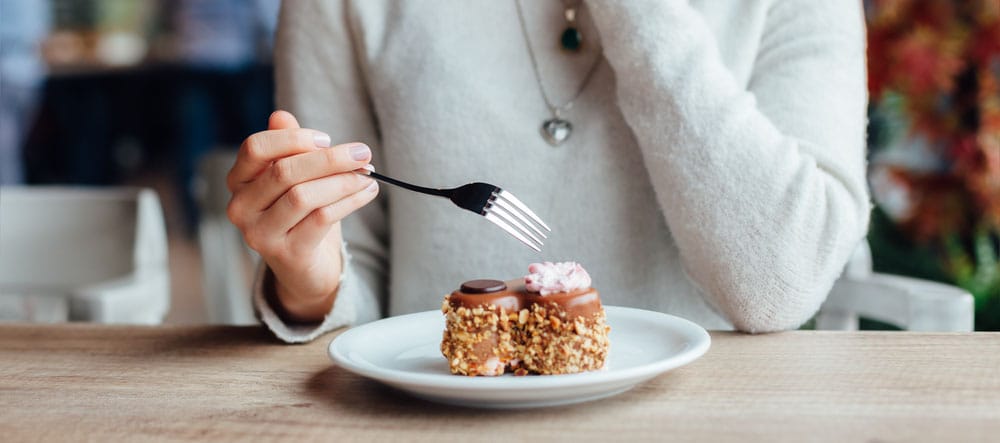For those with food-related challenges or an eating disorder, the holidays are full of events that can trigger addictive thoughts and behaviors. Triggers can be anxiety-provoking and stressful, setting a negative tone for the entire holiday season. Depending on which type of eating disorder your loved one has, giving in to temptations — or even just being exposed to the temptations on display — may trigger feelings of shame and guilt that set off a pattern of uncontrolled binging, purging or starving that continues through Thanksgiving and the rest of the holidays like a rolling snowball. Helping someone with an eating disorder and ensuring the holiday season is less stressful may require using a few tips to eliminate triggers that might disrupt their recovery plan and overwhelm them with an avalanche of obsessive thoughts and difficult emotions around food.
Tips for Supporting Your Loved One Who Has an Eating Disorder
If your loved one has received eating disorder treatment or participates in a 12-step support group for people with food issues, it is very likely their recovery plan includes getting extra support in certain environments. “Holiday challenges with family and food can be a huge trigger for those struggling with an eating disorder or disordered eating,” says Shannon McQuaid, LMFT, LISAC, CDWF, CSAT, executive director at Promises Scottsdale. “Some general coping tips for those in recovery are to attend events with a supportive friend or family member who knows their struggles, discuss a plan before the event or schedule time before or after to attend a support group.” You can support your loved one in these ways, and here are five additional tips to assist you in helping someone with an eating disorder:
#1 Ask your loved one which triggers they must avoid.
Because recovery plans for eating disorders are highly individualized, it can be tricky to know how to help your loved one avoid their particular set of triggers. If they are open about their eating issues and you are going to be hosting them at your house over the holidays or organizing a party or outing, it is OK to call them in advance to ask them what they need for support or if there is anything they must avoid to stay strong in recovery. Let them know you want to help them stay on their program. Knowing which triggers to steer clear of is key to helping someone with an eating disorder avoid relapsing.
#2 Organize a get-together that doesn’t revolve around food.
You can break with tradition by planning a holiday gathering that does not involve food or eating. You might organize a hike in a nearby park, a trip to the local ice-skating rink, or a group visit to a museum to see the latest exhibit. The focus of a gathering like this is on making connections with loved ones and enjoying your time together during a fun activity, rather than on gathering around a table to feast on indulgent foods. Meals can be extremely anxiety-provoking for people with eating disorders, so removing a meal from the equation by hosting a non-food event is likely to be appreciated by your loved one.
#3 Advance-plan for a holiday event at a restaurant.
If a holiday event must be held at a restaurant and your loved isn’t restricted from visiting restaurants as part of their recovery, there are some measures you can take to make things easier on them. Get the restaurant’s menu in advance and share it with everyone on your guest list, asking them to choose what they will order before you make the reservation to simplify the ordering process during the event. It may help your loved one if they know in advance what they will be eating and that the event won’t undermine their recovery with unexpected triggers.
#4 Circumvent difficult people or situations that may trigger relapse.
For many people with substance use disorders and eating disorders, triggers for relapse can include being around people they find difficult, or situations that have problematic dynamics for them — negative emotions can be triggers. Helping your loved one avoid the triggers for their eating disorder may involve not inviting the person who triggers them to visit your home at the same time — stagger your invites so you are able to see both relatives, but days apart. Likewise, if you know that visiting a relative’s house triggers your loved one’s disorder, visit that relative on your own and be understanding if your loved one chooses to decline the invitation.
#5 Make meals as “normal” as possible.
While some programs for people with disordered eating encourage abstinence from certain foods that serve as triggers, (i.e., sugar and flour), others do not encourage abstinence from any foods or food groups. Instead, they teach moderation, not elimination. “To support someone you love with disordered eating or an eating disorder, it is important to not change and adjust the menu, eliminate foods or make the person feel guilt or shame, or as if they are being singled out,” says McQuaid. “I would suggest making the celebration as ‘normal’ as possible and empowering your loved one to have a support person available to call, if needed. You can facilitate this by finding out where a local Eating Disorders Anonymous (EDA) meeting is located, and get them there. The most significant help you can provide your loved one is making sure they don’t isolate after the event and that they have someone there with them to share and support their struggles.” Sources Types and Symptoms of Eating Disorders. National Eating Disorders Association (NEDA). https://www.nationaleatingdisorders.org/types-symptoms-eating-disorders Eating Disorders. National Institutes of Health, National Institute of Mental Health. February 2016. https://www.nimh.nih.gov/health/topics/eating-disorders/index.shtml Eating Disorders. MedlinePlus, U.S. National Library of Medicine, September 2017. https://medlineplus.gov/eatingdisorders.html

